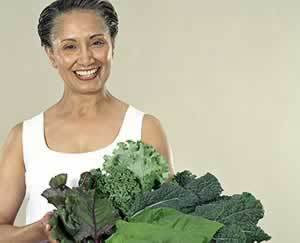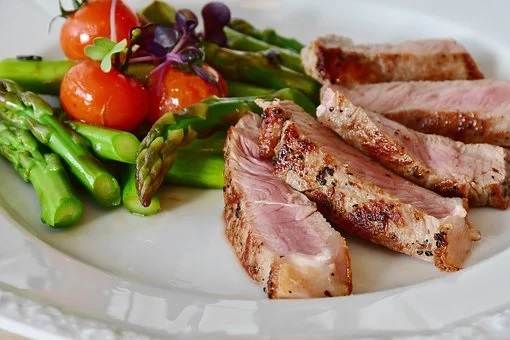There are many things we need to know about eating healthy as we age. Eating healthy comes is a must as we age. With age comes wisdom and the greater potential for physical activity and stress of life to affect your body. The body becomes more prone to illnesses which decreases the aging person’s ability to stay healthy. It is therefore important to strive to maintain a healthy body to keep illness at arms length by eating healthy as we age.
Problems for not eating healthy as we age
However, maintaining a healthy body as we age is not always easy. As the body ages, it loses bone muscle and gain fat because of the decreasing metabolism and the change in the hormones activity. Also, most of the problems the elderly have are related to nutrient deficiencies, such as protein and iron. Now, if you follow a healthy diet, you may greatly affect your body’s composition, making it fitter to withstand the stress of life.
Toward a healthy body
Of course, a diet is not the only thing that improves the body and its constitution. Exercise can also improve the body’s functions. Also, your daily habits can affect your health. Some problems that could arise from these habits are alcoholism and obesity. There are many other factors which could hinder your health, such as income, mobility, etc.
So, here is some information that could help you lead a healthy life – no matter how old you may be. This information could also help you minimize the effects of any illness you may suffer from just by eating healthy.
Nutrients Necessary for Eating Healthy as we Age
 Water
Water
Our body is composed of about 70% of water. Water is necessary to enable the processes of digestion, absorption, circulation, and excretion. It is the main element in the body that helps transport nutrients and oxygen throughout the body. It also helps to maintain a normal body temperature. For older people, it helps lubricate joints; this is especially important for those with musculoskeletal problems.
As you age, the sensation of thirst is dulled and it is easier to become dehydrated. For this reason you should not wait for thirst to tell you to drink water. When you do not drink enough water your body is not able to remove body waste – the kidney relies on water to remove waste products such as uric acid, urea, and lactic acid. These substances, if not removed properly, can cause damage to your kidney.
As you age, you have a number of body concerns which can be solved by simply drinking enough water. Water helps you stay fit, it enhances your muscle tone, improves your digestive system, and protects your many organs (including the brain); it prevents joint and muscle soreness and water retention; it slows the aging process and prevents a number of diseases common as we age, such as arthritis, kidney stones, obesity, glaucoma, catarac, hypoglycemia, etc.
Therefore, it is important you drink at about 10 glasses of quality water daily; others recommend you drink 1 ounce of water for every 2.2 pounds of body weight. It might be best for you to treat your tap water so as to reduce level of chlorine, pesticides, flouride, and other unwanted elements from the water. The most popular treatment for drinking water is distillation.
Protein
As we age we tend to lose considerable muscle mass. Protein eaten at every meal can help reduce the level of muscle loss. Protein is also needed as it provides structural material for the growth and repair of tissues. The recommended daily intake of protein for adults is at least 45 g/day for women and 55 g/day for men. Since energy needs are less, you should eat high quality protein such as eggs, lean meats, poulty, and fish.
Carbs, fiber and fat
Our main source for energy is carbohydrates. Carbohydrates is also referred to as starches. Carbohydrates are found in grains as well. However, complex carbohydrates are more likely to be converted into energy than simple carbs, which are more likely to be converted into fat. As we age our body composition changes and we need less amounts of carbohydrates. It is best to avoid refine sugars and reduce the amount of baked goods in the diet. This becomes possible when lots of fruits high in fiber is replaced. So go for those crunchy fruits. Such a diet will certainly help you reduce the risk of cardiovascular risk and even prevent constipation.
You will also notice that your metabolism decreases and you burn less calories. As a matter of fact, our energy needs decline every decade by 3 to 5 % from the time we reach 30. If you continue eating foods that are high in carbs and high in calories you will be getting heavier and less energetic, and thus increase the risk of health problems. These changes reflect your changes in your body composition. Therefore, your fat intake should be limited, not eliminated; you can limit fat by choosing lean meats, low fat dairy products, and employ food preparation methods that don’t include frying.
Iron, zinc and calcium
With age, your body’s capacity to absorb iron decreases. Iron is vital for health, but can be poisonous if taken in excess. Iron is necessary for physical and cognitive performance. Deficiency in iron may result in increase fatigue, weakness, and a pale appearance. It can cause cravings for paper, starch, dirt or ice. It can also cause upward curvature of nails, brittle nails or ridges in the nails. Iron deficiency result in anemia, a condition in which total hemoglobin content in the bloodstream is below normal. Iron deficiency is occurs in those who are not eating much as well. Therefore, such individuals should note the sources of iron, which include red meat and breakfast cereals.
However, if you want to take iron supplements, you should first consult with a qualified nutritionist before taking any iron supplement. Excess iron intake could increase the production of free radicals and oxidative damage to your body cells. It could also stimulate bone absorption.
Another mineral that is not easily absorb as you age is zinc. Zinc is essential for the function of the retina and prevents its deterioration. Doctors recommend 15 mg to 50 mg of zinc a day. However, too much can deplete the body of copper, another essential mineral. Therefore, doctors recommend 1 mg of copper for every 10 mg of zinc. Zinc can be found in meat, poultry, and fish.
Calcium
Calcium is another ingredient that most adults aren’t getting enough of. Adults generally absorb only 20 to 30 % of calcium consumed. Also, if you have poor kidneys, it is possible that your calcium absorption is lower. Poor digestion also affects the absorption of calcium. Therefore, it is important to know what choices of calcium sources is available to you, especially if you have an allergy or intolerance to milk, one of the main sources of calcium. Generally, you should be getting around 1,500 mg of calcium a day.
Vitamin B12
One vitamin that is not easily absorbed as we age is vitamin B12. Symptoms of vitamin B12 deficiency are weakness and numbness in the extremities. Most elderly people suffer from a deficiency in B12 because they have a condition known as atrophic gastritis. This condition causes inflammation of the stomach, bacterial overgrowth, and the intrinsic factor. Without the intrinsic factor, this vitamin can be absorbed.
As discussed each of the above nutrients are necessary for a healthy body. Healthy living entails healthy eating. We must seek to eat foods that are high in the nutrients mentions above, especially as we age. However, you should also develop a holistic method of keeping healthy. This will include staying active. A balance diet is beneficial for mental and physical health and a long enjoyable life.
Cholesterol
Some mention should be given on cholesterol. Cholesterol is an organic molecule. it is found in all the cells in your body. Your body needs cholesterol to make hormones, vitamin D, and substances that help you digest foods. It is also found in food from animal sources (such as eggs, meat, and cheese). Not all cholesterol is bad. Have a look at this video below.
Download our free toolbar
Join our Facebook fanpage
Subscribe to our Newsletter
Related Articles:
Introducing healthy eating
Tips for healthy eating
Busting 10 myths on healthy eating
Healthy Eating: taking control of what you eat
10 things you need to know about losing weight
Meat, to eat or not to eat
Oyster
Eating Healthy During Pregnancy
.


